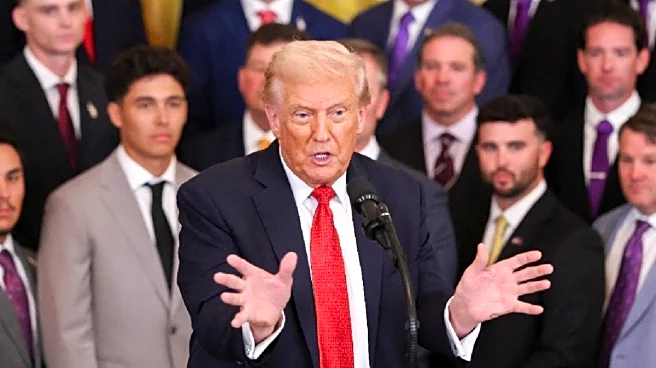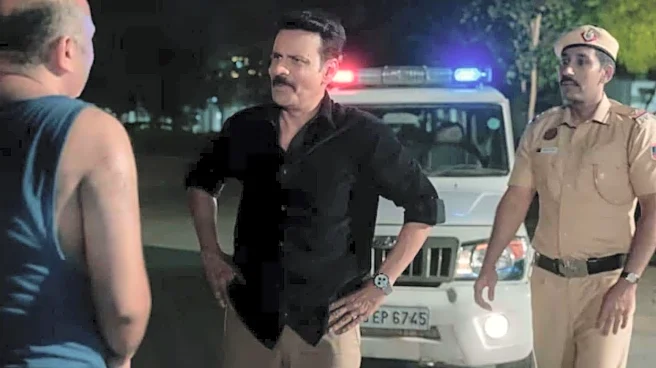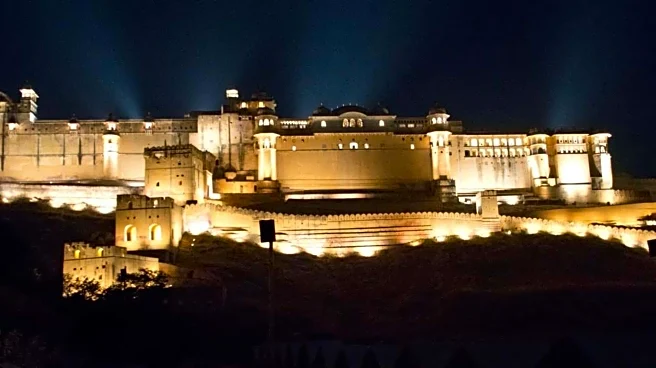Had it been any other organisation but the BBC, just a smirk and a knowing shrug would have been enough to acknowledge egregious shortcomings in standards. The media, after all, has now garnered a reputation
for bias and partisan reportage. But a public funded broadcaster—entities often touted as adhering to higher standards of integrity than so-called private media—being caught blatantly breaking rules of reportage is like a body blow to the whole genre.
It is one thing to deliberately allow the telecast of the anti-Semitic/anti-Israeli diatribe of a musician at Glastonbury Festival, but it is another matter altogether to deliberately cut and paste the rousing speech of a US Presidential candidate to imply that he was advocating armed insurrection. As that allegation was one of the main planks of the opposition’s campaign against him, surely this then counts as a case of British interference in the US elections, not Russian?
In any large organisation, including the media, there are innumerable checks and balances. In fact, the bigger the organisation, the more onerous their failsafe measures. It is inconceivable that the deliberate dicing and splicing of Donald Trump’s speech would not have been run past several higher-ups before being done, given the implications of the US elections. No ginger group could have pulled this off without anyone up and down the line catching on.
It is strange that none of the veteran newsroom bosses who saw BBC’s flagship Panorama programme before it was aired noticed that Trump’s speech sounded uncharacteristically concise or even remembered that particular peroration given how many times it was reiterated since 2020. Had Trump indeed said ‘them fightin’ words’ in exactly that succinct sequence—not 55 minutes apart as was the actual case—legal action in US would have been inevitable.
No one in such a huge and hoary news organisation had a niggle about verifying the statement before letting it become the punchline of a programme that was to go on air just before Americans came out to vote. That sounds highly improbable. So it must be concluded that there was concurrence about what was being done—‘doctoring’ the long speech to put the beginning and the end together, cutting out the exculpatory sentences in between. This is unforgiveable.
Now the BBC’s director general Tim Davie has resigned as has the CEO of news Deborah Turness. The rationale is that the buck stops at the top. But in this case, that is not enough because clearly there are more people in the BBC churning out biased and prejudiced content; the bosses at best are complicit and compliant. They do not actually conceptualise and create the slanted content; they allow it to happen and let those who do so believe they can get away with it.
So it will simply not do to let the matter rest with the exit of the top two. There has to be rigorous audit of the people inside the BBC to figure out how those slanted decisions on coverage were made, including on matters like allowing a Hamas official’s son to be the star of a documentary on a fraught issue like the conditions inside Gaza. Or insisting on calling the massacre of 26 tourists by jihadi terrorists in Pahalgam this year just a “militant attack”.
Refusal to accept wrongdoing—deliberate or otherwise—is reflected in the leaked report of Michael Prescott, the BBC board’s independent advisor since 2022. He mentioned that the BBC had “failed to address issues” that he had raised and even “simply refused to acknowledge that there was an issue at all.” This sort of confidence to stonewall queries clearly arose because the BBC was in effect self-governing and hence could ignore and suppress all criticism.
The Trump administration must have exerted considerable pressure on the UK for the BBC to finally admit it’s outrageous, unethical behaviour. Curiously, its status as a so-called public-funded “autonomous” media outlet has made the BBC especially arrogant about accountability. It is not administered by the government and thus is not answerable to a ministry—unlike India’s state TV and radio, for instance. But it is not answerable to any private owner either.
Basically, BBC is accountable only to itself and therefore has the means to save its own skin whenever under fire from the public. Thanks to another independent inquiry, the public has known since 2021 about how BBC’s Martin Bashir had fabricated evidence to convince Princess Diana to give that Panorama interview. Yet the internal inquiry into Bashir’s actions by the BBC in 1996 had given him a clean chit. Did the facts change between 1996 and 2021?
India-born BBC chairman Samir Shah revealed Trump’s speech editing drew over 500 complaints that were “now being dealt with in the normal way” and had “prompted further reflection by the BBC” thus rings hollow. He accepted “that the way the speech was edited did give the impression of a direct call for violent action” and said that the BBC “apologizes for that “error of judgement.” How can a senior media professional call this a mere “error of judgement”?
Shah’s letter to a Parliamentary committee, in fact, reflected the basic problem with the BBC—inability to come clean. He claimed Prescott had got nothing but cooperation from the BBC (which begs the question of why a leak was needed for this information to emerge) and all issues were being addressed. On the US election, Shah said that there was an “issue with the Iowa poll” but that the BBC’s overall polling coverage was “very good, particularly online”!
Yet, besides the doctored speech, Prescott cited nine other instances, including amplifying that (in)famous inaccurate Iowa poll favouring Kamala Harris, giving excessive coverage to Trump’s comments about people eating pets, misreporting that Trump “wants people to shoot Liz Cheney in the face”, and focusing only on Harris’ campaign planks—abortion and women’s rights, while ignoring Trump’s ultimately more effective economy, jobs and immigration focus.
Davie and Turness’ words also reflect the BBC’s unwillingness and inability to own up and clean up its act. Davie’s statement was a verbal salad of nothingness. “In these increasingly polarised times, the BBC is of unique value and speaks to the very best of us. It helps make the UK a special place; overwhelmingly kind, tolerant and curious. Like all public organisations, the BBC is not perfect, and we must always be open, transparent and accountable.” Meaning?
Davie went on to say, “While not being the only reason, the current debate around BBC News has understandably contributed to my decision. Overall, the BBC is delivering well, but there have been some mistakes made and as Director-General I have to take ultimate responsibility.” Can allowing the doctoring of a speech of a presidential candidate just eight days before polling be called a “mistake”? He had defended that decision to “edit” till just a few days ago.
Ex-CEO Turness was even less repentant. “I stepped down over the weekend because the buck stops with me,” she said in a statement. “In public life, leaders need to be fully accountable…. While mistakes have been made, I want to be absolutely clear recent allegations that BBC News is institutionally biased are wrong. In a polarised world, BBC News journalism is more vital than ever.” She reiterated that BBC is “the world’s most trusted news provider.”
On that last point (which Davie also stated) she may find many people ending up agreeing (if reluctantly) with Trump who reacted to the resignations by posting, “Thank you to The Telegraph for exposing these Corrupt ‘Journalists’. These are very dishonest people who tried to step on the scales of a Presidential Election. On top of everything else, they are from a Foreign Country, one that many consider our Number One Ally. What a terrible thing for Democracy!”
But Turness’ response to Trump was strangely anodyne: “Our journalists aren’t corrupt and I will stand by their journalism”. If Trump does indeed slap a $1billion (£760million) lawsuit on the BBC if it does not “issue a full and fair retraction” of the Panorama episode, an apology and proper compensation, she may well be asked to substantiate her favourable assessment of BBC’s journalism standards in light of the undeniable distortion of his speech by them.
Editing Trump’s speech was obviously the last straw but the whole bale needs to be examined: a thorough audit of BBC’s processes and accountability for its acts of omission and commission. The BBC Royal Charter under which it is funded by TV licence money from the public is due for renewal at the end of 2027 so governance and regulatory arrangements will be reassessed. But should the British public continue to pay for the BBC’s whims and biases?
The author is a freelance writer. Views expressed in the above piece are personal and solely those of the author. They do not necessarily reflect News18’s views.





/images/ppid_a911dc6a-image-177088522728382126.webp)

/images/ppid_59c68470-image-177088509203227042.webp)

/images/ppid_59c68470-image-177088512602071040.webp)
/images/ppid_59c68470-image-177088515585183979.webp)
/images/ppid_59c68470-image-177088504440359883.webp)
/images/ppid_a911dc6a-image-177088508859041936.webp)
/images/ppid_a911dc6a-image-177088504145317785.webp)
